When It Comes to the Bible’s Teaching On the Sin of Homosexuality, the Church Must Speak with Bold Clarity, not Soft Obscurity
It’s challenging to think of a more pitched theological battle facing the Church in our present day than that of Christianity versus homosexuality.
At every turn, the Bible’s teachings on human sexuality, the nature and meaning of marriage, and sexual ethics are under fierce attack. The conquest of the sexual revolution has successfully planted a seed of doubt in the minds of many Christians: Did God really say that homosexuality is a sin?
This doubt has only been exacerbated by the 2015 Supreme Court ruling in Obergefell vs. Hodges, which “redefined” marriage in America to include homosexual relationships that are not, and cannot, be understood as marriage.
The effort to sanctify homosexuality in the lives of professing Christians is not just a secular effort. Earlier this year, a prominent New Testament scholar, Richard B. Hays, reversed his longstanding position on the immorality of homosexuality, arguing that a “widening of God’s mercy” must lead Christians to now bless what the Bible so clearly condemns. In an article for World Magazine, Albert Mohler spots the play: “In case you haven’t caught on, here’s how the world now works. If you want major attention and applause from the cultural left and its influencers, offer a loud and apologetic shift to a more liberal position on an issue of cultural obsession—especially an issue related to LGBTQ priorities.”
The culture, the courts, and even professing Christians are all getting in on the compromise of affirming homosexuality. The stakes could not be higher for the Church—and, by extension, the Southern Baptist Convention. Will we continue to proclaim the whole counsel of God’s Word as it pertains to human sexuality, marriage, sin, and righteousness, even if it means being called hateful bigots? Or will we subtly compromise with the pride flag-wrapped spirit of the age and apologize for our backward beliefs?
Faithfulness demands the former. As such, we must be vigilant to biblically counter even the first signs of confusion or compromise on this subject.
And that’s what this four-part series is intended to do: Provide a thoughtful and charitable, but unswervingly biblical, response to a prominent Southern Baptist pastor who has, unfortunately, developed a track record of confusing at best—and unbiblical at worst—teachings on homosexuality.
That pastor is J.D. Greear.
J. D. Greear is the former President of the Southern Baptist Convention and the lead pastor at the multisite megachurch The Summit in Durham, NC. In 2019, Greear published a blog post on his personal website titled “Three Ways We Go Wrong When Discussing Homosexuality.”
While Greear is no longer the president of the SBC, his influence in the SBC is still substantial. And while this blog is a few years old, Greear’s unbiblical teachings on homosexuality—arguably one of the most critical issues for Christians to get right in our present moment—have led many astray.
First, I want to be as charitable as possible. Let’s assume Greear’s post is well-intentioned; it’s also certainly not entirely wrong. We should rejoice that he takes a stand in clearly proclaiming, along with the word of God, that homosexuality is sin.
However, Greear’s post is also unhelpful regarding some points of theology on homosexuality. Given the necessity of biblical fidelity and compassionate ministry regarding homosexuality, these unhelpful aspects of Greear’s post are worth addressing. Therefore, this series will carefully examine Greear’s claims in his blog post and provide a biblical response.
In this first entry, I will focus on clearing the field of potential objections to my engagement and then pointing out two problematic assumptions that undergird Greear’s argument.
Clearing the Field: Five Possible Objections to My Rejoinder
Five potential objections to interacting with Greear’s post are anticipated and answered below so that the focus can be on the substance of his post.
One: Am I wrong to criticize a blog post written as a devotional?
Blog posts are public, and devotionals can be wrong. Although Greear’s post is categorized as “devotional” at his site, the post is almost entirely theological in nature. Greear would agree, as he intends to teach the Church something through his post.
Two: Am I wrong to criticize J. D. Greear?
Greear should never be thought of as in a position where he is above criticism (as with anyone else). This essay is written to offer clarification in terms of what we should find as unhelpful aspects of Greear’s blog post on the topic of homosexuality. Indeed, given Greear’s claim that “we” have gone wrong on homosexuality, Greear should not object if someone critiques his post in turn.
Three: Are we wrong to focus on homosexuality?
The topic of homosexuality is prevalent in society and hence demands a response from the Church. Society speaks to the topic, the Bible speaks to the topic, the Church speaks to the topic, and Greear speaks to the topic, so nothing short of special pleading would preclude me from speaking to the topic.
Four: Am I wrong to “nitpick?”
This essay seeks to interact carefully with Greear’s piece, which requires time and thought, with clarity in terms of commendation and concerns. Given the specificity with which he attempts to tease out the particulars of the topic at hand, I hope that Greear himself would ultimately agree.
Five: Are we wrong to argue with other Christians where the world can see it?
Christians can set the example for how arguments should be conducted. In his post, Greear himself argues with other Christians, seeking to correct where he believes they have gone wrong when discussing homosexuality, and he does so before a watching world.
The tone of Greear’s post is also not unimportant, particularly when considered in relation to his assumptions about the historic teaching of the Church on homosexuality and the experience of homosexuals.
Greear’s Negative Assumptions About Christianity
Greear begins his post with the claim, “Historically, we in the church haven’t done a great job in conversations about homosexuality.” Setting aside the possibility that Greear might only be speaking to some short-falling in his own church, Greear’s claim is not overly persuasive as it stands because he does not provide any historical examples to support his claim.
Unfortunately, because Greear does not provide any historical examples to support his claim, he also does not provide any historical examples to clarify what he means in saying we have not done a “great job.” However, the remainder of his post offers some insight into the nature of Greear’s claim, which provides the context for this otherwise bare assertion.
Later in his post, Greear claims that “We’re wrong if we believe God doesn’t care about our sexuality,” “We’re wrong if we think same-sex behavior is a fundamentally different type of sin,” and “We’re wrong if we assume it’s hard for LGBT people to get to heaven.”
These three claims clarify what Greear means by his claim that “we in the church haven’t done a great job in conversations about homosexuality.” Each of these claims will be more closely examined below. But for now, these statements serve to clarify what is behind Greear’s initial claim about the supposed failure of the Church in doing a poor job of conversing about homosexuality. The reason Greear believes that, historically, “we in the church haven’t done a great job in conversations about homosexuality” is because we’ve “believed God doesn’t care about our sexuality,” we “think same-sex behavior is a fundamentally different type of sin,” and we “assume it’s hard for LGBT people to get to heaven.”
But are these claims true and valid?
Greear does not provide any historical evidence to support these claims either. Readers are simply expected to accept Greear’s assertions on the basis of his say-so. Of course, we are talking about a blog post here, not a research paper. Nevertheless, far from believing that “God doesn’t care about our sexuality,” hasn’t the Church actually faced the accusation that she focuses too much on sexuality and too much on sexual sins—like homosexuality—in particular?
And far from thinking same-sex behavior is “a fundamentally different type of sin,” hasn’t the Church, with Protestant theology in hand, emphasized that “all sins are the same” in terms of making us legally guilty before God? Finally, rather than assuming it is “hard for LGBT people to get to heaven,” aren’t Christians often mocked with phrases like ‘pray the gay away,’ for supposedly believing in a great ease with which homosexuals might be transformatively saved?
Greear provides no evidence to support his assumption about the poor job Christians have done in conversations about homosexuality. Still, the observations just noted appear to contradict what he is saying.
According to Greear, if Christians have done a poor job of teaching about homosexuality, they have done an even poorer job of ministering to homosexuals. He continues, “And we’ve done an even worse job caring for those experiencing this.” Like his other claims, Greear provides no specific examples for this grave accusation. Perhaps the claim is true, but Greear provides no reason to believe the claim is true, nor does he provide any specificity as to what, exactly, he is talking about.
So far, we have several sweeping claims that paint Christians in a bad light as regards the sin of homosexuality but nothing to substantiate them. Greear’s post makes little sense apart from understanding him to mean that he set forth to correct several thousand years of Christian teaching and ministry regarding homosexuality.
Such is Greear’s working assumption with regard to the Church and addressing homosexuality in his post. In sum, they are quite negative (painting the Church in a bad light) and wholly rhetorical (statements made with no supporting evidence).
Greear’s Positive Assumptions About Homosexuality
Greear approaches his post with some questionable assumptions about the sin of homosexuality as well. Perhaps most troubling about this opening section is Greear’s use of “experiencing this.” The referent of “this” is “homosexuality,” which is to say, Greear believes homosexuality is something people experience, putting them in need of care.
Strictly speaking, one does experience his or her sin in terms of temptation to the sin, participation in the sin, and the consequences of the sin. If that is all Greear means, then we need not belabor this point. But it is not clear that this is all that Greear means, given the context of the post.
What does the context of the post reveal?
The use of “experience this,” coupled with Greear’s later admission that he does not “dispute” a person claiming to be “born this way,” is troubling indeed. In that case, homosexuality becomes, for Greear, a congenital “given,” to use language from Revoice founder Nate Collins, an “experience” for which one needs care. This softened language is indicative of a definite shift toward softer theology and practice than what the Church has historically held with regard to the sin of homosexuality. Perhaps that’s what Greear’s objection is; he knows better than the Church how to “care” for those “experience[ing]” homosexuality from birth.
However, we need not construct an unbiblical victimology to faithfully minister to sinners through historical theology. Undoubtedly, Greear would agree, but his post’s unsubstantiated assumptions and resulting rhetoric are not clearly consistent with the aforementioned sentiment.
Homosexuality is not something we merely experience. Homosexuality is not something we merely need care for in the way a child needs the care of his mother. Homosexuality is not some neutral ‘given.’ Homosexuality is something for which we are responsible. Homosexuality is something from which we should repent.
No, homosexuality is sin.
Why would Greear strike a tone in his post that distances him from the historic position and practice of the Church on the topic of homosexuality?
Whether he is right or wrong, in terms of his assumptions and rhetoric, Greear is harder on the Church than he is on homosexuals.
This approach, coupled with the popularity of unbelievers who approach this topic in much the same way, provides some reason for significant concern about Greear’s teachings on this critical topic.
Now that I’ve 1) cleared the field and 2) addressed the misguided framing (hard on the Church, soft on the sin of homosexuality), in my next entry, I will carefully consider Greear’s first claim, “We’re wrong if we believe God doesn’t care about our sexuality.”
-

Chris Bolt is the Pastor of Theology and Apologetics at the Village Church in Richmond, VA. Chris is a lifelong Southern Baptist, two-time graduate of The Southern Baptist Theological Seminary, and has served as a pastor and professor for a decade. He is author of The World In His Hands: A Christian Account of Scientific Law and its Antithetical Competitors, host of the Christ or Chaos podcast, and has written for Founders Ministries, American Reformer, and Christ Over All.

